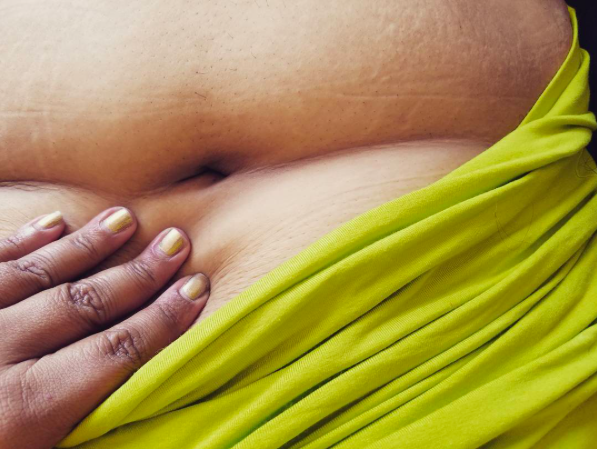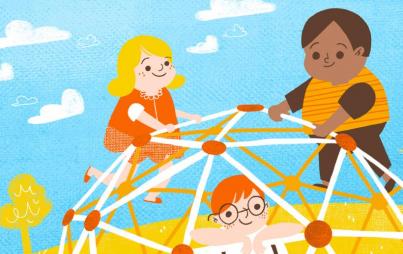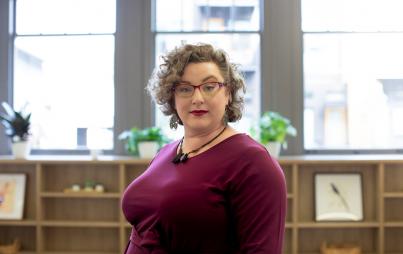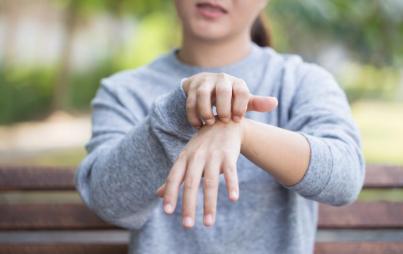
Image from the author's Instagram (@virgietovar)
This week I had an enraging experience that led me to want to write a letter directly to fat people (below).
I ran into this thin (this will be important later) dude who used to work at the douchebro coffee shop (DBCS, for short) that’s two blocks from my house a few months ago at a reading. He read a piece. I read a piece. We chatted a little afterward. Casual neighborhood writer friend made, I thought.
The next time I saw him at DBCS (their coffee is so good, though!), he didn’t say hello. I figured he hadn’t seen me. Except it happened again, and then again. I figured he was an introvert.
Then, I saw him at the other popular, further-from-me coffee spot in our neighborhood. I affectionately refer to this coffee shop as the “Chubby Queer Babes Spot.” They often give me a steep discount on my espresso + whipped cream drink of choice, and we have short conversations about feminism when things are slow. I see the dude and something different happens. He runs over to me, all smiles, saying hello and also asking me if he can invite me to a reading he’s putting together. I’m happy we’re friends again, and I say yes.
Except no.
Fast forward to Tuesday of last week. I’m short on time and end up at DBCS. There he is, and he ignores me again. And it is then that I realize what is happening.
Fat girls of Planet Earth, you know what I’m talking about. This dude is pulling a classic thin asshole move. He does want to be my neighborhood writer friend, but he doesn’t want his douchebro friends to know it.
Discrimination, oppression, and stigma create the unfair reality that bars fat people from full access to the lives we desire and deserve.
Just being seen talking to me puts him at risk of losing his hard-won thin misogynist cred. So, he only acts on his desire for friendship in the safer environment — the one these amazing feminist folks are working their asses off to create. He benefits greatly from these chubby queer babes’ work, while he simultaneously degrades it through his continued investment in toxic masculinity.
And that is the background for this letter I wrote:
Dear Fellow Fat People,
Thin people are not superior to us.
Though we have been inundated from every imaginable angle — from family sitcoms, rom coms, horror movies, commercials for hair removal products, afterschool specials, Super Bowl ads, best-selling novels, and packaging for blueberry muffins — with the message that thin people “naturally” lead richer, more nuanced, more complex and happier lives, there is actually nothing “natural” about these assertions.
Discrimination, oppression, and stigma work in two significant ways to create the notion that people in a dominant group live better lives.
First, they seek to hide the real joy, intimacy, love, creativity, resilience, meaningful relationships, sex, and complexity that stigmatized people experience and create every single day of our lives. Confirmation bias affects how we as a culture see each other. It leads to us discarding information that does not support culturally prevalent attitudes. For example, when a person believes that fat people are less happy than thin people, they will favor — and sometimes even seek out — evidence that confirms this, while discarding countervailing evidence. This first method of dehumanization functions on a psychic level. It manifests through culture-wide representation and story-telling, like how fat people are represented in media and the stories that are told (or not told) about our lives.
You Might Also Like: Dear Fat Ladies, I Love Your Butt, But That's Not All
Second, insofar as many fat people do actually have less access to joy, love, and meaningful relationships, it is not under “natural” circumstances. Discrimination, oppression, and stigma create the unfair reality that bars fat people from full access to the lives we desire and deserve. By pretending that unequal access is obvious or somehow to-be-expected, we culturally deny the very real mechanisms that make this reality possible.
Further, by pretending that unequal access is natural, we blame individuals for social problems rather than recognize that they are victims and targets of bigotry. This act of blaming perpetuates bigotry and the inevitable negative results that bigotry creates. This second method of dehumanization functions on a structural level. It manifests through interpersonal and institutional methods, like how fat people are less likely to be taken seriously as a job candidate or a romantic partner.
Fatphobia asserts that thin people are naturally better, happier, more fulfilled, and more real than us. That is patent horseshit.
No human is superior to another human.
No human is more real than another.
Compliance grants us more access to privilege. Privilege is a socially constructed good that we often wrongly confuse with happiness.
The idea that we can achieve greater access to humanity through weight compliance is completely false. When people become more weight compliant through weight-loss or dieting and experience a sense of heightened humanity (e.g., when people tell me they “just feel better” on a spiritual level when they are 20 or 50 pounds lighter), it is important to recognize that it is not the weight-loss or dieting itself that gives us these feelings. It is the cultural system that rewards weight compliance that give us these feelings.
Compliance grants us more access to privilege. Privilege is a socially constructed good that we often wrongly confuse with happiness. Even though the acquisition of privilege can lead to the feel-good chemicals we get when we are doing things that get us approval, privilege, and happiness are, in fact, not the same thing. Privilege offers us the positive feelings we receive when we get in-group recognition — in other words, it gives us a sense of belonging.
Fat people, we do not have to acquiesce to our culture's normalization of hierarchy. We do not have to turn the other cheek.
We can demand fairness. We can demand both the recognition of our complexity and greater access to fuller lives. We can recognize that choosing proximity to thin lovers and friends does not grant us safety, only the shallow pleasure of complicity that we have been taught is joy. Real joy nourishes you. It does not require you to go back again and again in order to feel some crumbs of humanity. Joy does not come at the expense of your dignity, of your humanity.
Humanity is your birthright. Humanity is already yours.








